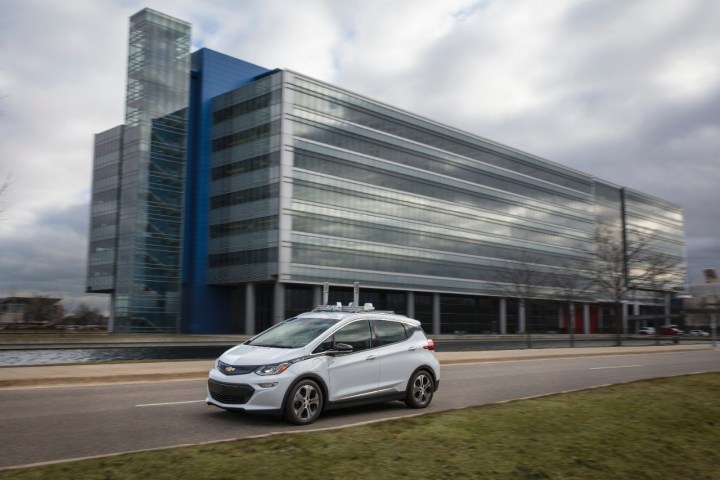
General Motors announced today that it will begin autonomous vehicle production in The Wolverine State next year, starting with a fleet of self-driving Chevrolet Bolt EVs. Testing is already underway around the brand’s Technical Center campus in Warren, but after the holiday season subsides, the next generation of driverless vehicles will hit the streets, packing Lidar sensors, cameras, and a bevy of other autonomous hardware. According to GM, the future is just around the corner.
“Revolutionizing transportation for our customers while improving safety on roads is the goal of our autonomous vehicle technology, and today’s announcement gets us one step closer to making this vision a reality,” said General Motors CEO Mary Barra. “Our autonomous technology will be reliable and safe, as customers have come to expect from any of our vehicles.”

Unlike Silicon Valley — which is either blessed or cursed with perpetual summer depending on your perspective — Michigan’s weather can be a tad more harsh. This presents unique challenges and opportunities for GM, as driverless cars can struggle in low-visibility conditions like snow or ice. The company currently has more than 40 self-driving cars testing around San Francisco and Scottsdale, Arizona, but that number is sure to grow.
In addition to permitting autonomous vehicle testing and development, the SAVE Act establishes guidelines for the eventual sale of driverless cars and enables automakers to launch automated ridesharing services. The SAVE Act is also responsible for the newly christened Michigan Council on Future Mobility, which will propose industry standard policies, monitor connected vehicle networks, and determine how traffic data will be best utilized moving forward.

